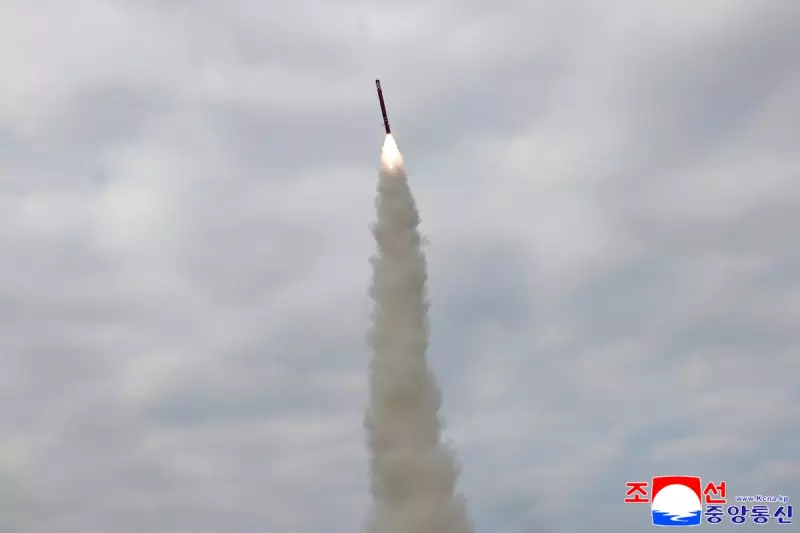
In a calculated display of military defiance, North Korea has launched multiple ballistic missiles during former US President Donald Trump's high-profile visit to Seoul, sending shockwaves through the international community and dramatically escalating regional tensions.
Timed Provocation During Diplomatic Mission
The missile launches occurred at approximately 10pm local time on Wednesday, strategically timed to coincide with Mr Trump's presence in South Korea. The former president is currently engaged in what his team describes as a "private diplomatic mission" aimed at addressing the ongoing nuclear standoff with Pyongyang.
South Korea's Joint Chiefs of Staff confirmed the launches, stating that multiple short-range ballistic missiles were fired from the Sunan area near Pyongyang toward the eastern sea. The projectiles travelled approximately 300 kilometres before landing in waters between the Korean Peninsula and Japan.
International Condemnation and Response
The Pentagon has been closely monitoring the situation, with defence officials expressing grave concerns about North Korea's continued weapons development despite multiple UN Security Council resolutions prohibiting such tests. A senior US defence official, speaking on condition of anonymity, described the launches as "a serious escalation" that threatens regional stability.
Japan's Coast Guard immediately issued navigation warnings to vessels in the affected area, while Prime Minister Fumio Kishida condemned the tests as "absolutely unacceptable" and a clear violation of international law.
Trump's Controversial Peace Overtures
The missile tests come amid Mr Trump's unusual private diplomatic efforts, which have raised eyebrows among security experts and former officials. The former president has previously claimed he maintains a "very good relationship" with North Korean leader Kim Jong-un, despite the regime's continued weapons development during and after his presidency.
Mr Trump's visit to Seoul included meetings with South Korean political figures and business leaders, though the exact nature of his discussions regarding North Korea remains unclear. His representatives have characterised the trip as an attempt to foster dialogue and reduce tensions on the peninsula.
Pattern of Provocation
This latest provocation follows a familiar pattern from Pyongyang, which has frequently used high-profile diplomatic events to demonstrate its military capabilities. North Korea has conducted more than a dozen missile tests this year alone, including multiple intercontinental ballistic missiles capable of reaching the United States mainland.
Security analysts suggest that the timing of these launches serves multiple purposes for Kim Jong-un's regime:
- Demonstrating military capability despite international sanctions
- Testing the responses of regional powers
- Strengthening domestic political control
- Leveraging for future negotiations
Regional Security Implications
The continued advancement of North Korea's missile programme represents a significant threat to regional security, with South Korea, Japan, and US territories all within range of the regime's growing arsenal. The United States maintains approximately 28,500 troops in South Korea as a deterrent against Northern aggression.
White House officials have been briefed on the situation and are coordinating with allies in Seoul and Tokyo. The Biden administration has maintained that it remains open to dialogue with North Korea, but only if such talks lead toward complete denuclearisation of the peninsula.
As tensions continue to simmer, the international community watches anxiously for North Korea's next move, with many experts warning that the regime may be preparing for its first nuclear test since 2017.





